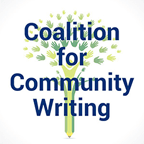Document Type
Article
Abstract
Integrity is commonly conflated with basic literacy in assessments of the skills workers need. This case study of a word-based character education program in Springfield, Missouri examines how business leaders may blame a lack of skills by employees on a lack of moral literacy. The premise of this essay is that the expression of a literacy program by participating institutions will be influenced by the political culture of the region in which the institutions reside. Considering the influence of political culture on community literacy programs is important because such influence is likely to privilege certain sets of socio-political and economic values, and ways of knowing, over others.
Recommended Citation
Cline, Andrew R. “Political Culture and Moral Literacy: Using Words to Create Better Workers.” Community Literacy Journal, vol. 1, no. 1, 2006, pp. 83–93, doi:10.25148/clj.1.1.009532.

